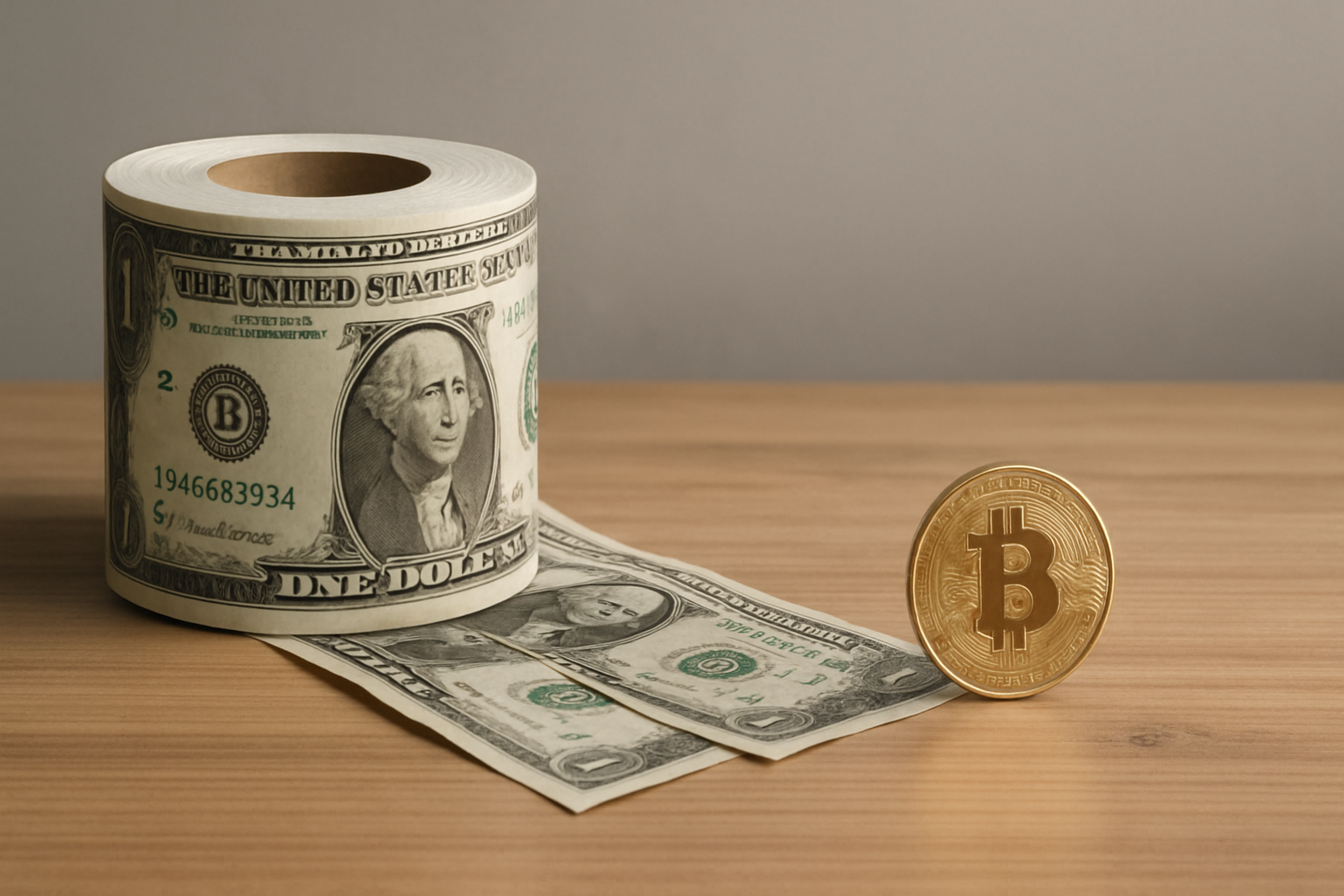The question dropped like a bomb at dinner. "At what point do we admit the dollar is just the world's most successful shitcoin?" asked a former Treasury official—dead serious—as I choked slightly on my overpriced cabernet.
It's the kind of provocative question that would've seemed absurd just years ago. But here we are, with Bitcoin flirting with $70,000 while the Fed continues its monetary policy gymnastics (a kind sport, calling whatever they're doing "gymnastics").
Look, cryptocurrency zealots have hurled the "shitcoin" insult at the USD for years, mostly as a reflexive comeback when someone dares criticize their digital darling. Now? The comparison deserves actual consideration.
So what makes a shitcoin a shitcoin?
Unlimited supply. Centralized control. Opacity in operations. Arbitrary rule changes. Declining purchasing power.
Sound... familiar?
Since 2020, the Federal Reserve has expanded money supply at rates that would make even the most reckless altcoin developers blush—nearly 40% of all dollars in existence were created in just 24 months. Imagine if Ethereum pulled that stunt. Crypto Twitter would implode!
The centralization aspect isn't even debatable. A small committee of unelected officials determines monetary policy behind closed doors, occasionally emerging to deliver statements so cryptic they make Nostradamus look straightforward. At least when Vitalik Buterin proposes protocol changes, he does it publicly on GitHub where everyone can see his work.
I've covered Fed press conferences since 2018, and I still couldn't explain what "flexible average inflation targeting" actually means in practice. Neither, it seems, can Powell himself.
Then there's the purchasing power problem.
Inflation may have cooled from its 9% peak (thank heavens for small mercies), but even at today's "more modest" 3-ish percent, we're looking at a guaranteed devaluation schedule built right into the system. Most cryptocurrency projects would kill for that level of predictable depreciation—they typically crash much harder, much faster.
The comparison gets more intriguing when considering network effects. The dollar's primary value proposition isn't its inherent qualities but rather that everyone uses it. Network effects, man. The dollar has the ultimate first-mover advantage in fiat currency, just as Bitcoin does in crypto.
(Though Bitcoin's supply is mathematically capped at 21 million coins—a feature, not a bug, its advocates would eagerly point out.)
But calling the dollar a shitcoin ignores its undeniable utility. You can buy groceries with it. Pay taxes with it. Your salary—unless you're one of those tech bros who negotiated a Bitcoin compensation package—comes denominated in it. No cryptocurrency has achieved this level of integration with daily economic life.
Still...
The USD maintains its reserve currency status not because of sound monetary policy but because of America's military dominance, institutional stability (increasingly questionable, if we're being honest), and those network effects I mentioned. It's too big to fail, which is precisely what makes sophisticated investors nervous.
And the dollar skeptics aren't just crypto bros in hoodies anymore. Ray Dalio, Stanley Druckenmiller, and other establishment figures have expressed concerns about the dollar's long-term trajectory. When BlackRock's Larry Fink starts talking positively about Bitcoin as a potential store of value, something fundamental is shifting in the financial landscape.
I'm not suggesting we'll all be paying for our morning coffee with Bitcoin next year. That's ridiculous. The transaction fees alone would make that $5 latte cost $25.
But the conceptual framework for evaluating currencies is undeniably changing. When central banks themselves are exploring digital currencies, they're tacitly acknowledging that the monetary operating system needs an upgrade.
So is the dollar a shitcoin? Not exactly. It's more like an aging protocol with massive technical debt that still runs most of the world's applications. Windows 95 with a bunch of patches. It works until it doesn't, and the switching costs remain prohibitively high.
For the first time in generations, though, viable alternatives are being built, tested, and scaled. The competition isn't just other fiat currencies managed by different central banks—it's an entirely new paradigm of programmable money with different fundamental rules.
Maybe the better question isn't whether the dollar is a shitcoin, but rather: how long can any monetary system maintain dominance when devaluation is baked into its design? History suggests the answer is "longer than you think, until suddenly it can't."
I told my Treasury friend that calling the dollar a shitcoin was unfair. After all, most shitcoins don't have aircraft carriers enforcing their reserve status.
He didn't find that nearly as amusing as I did. But then again, he's got more skin in the game.
